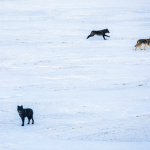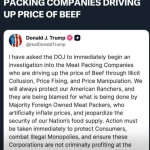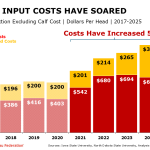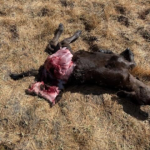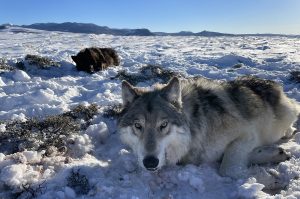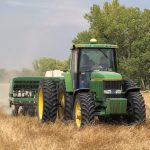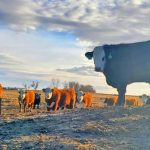Angry Danish dairy farmers stop feeding Bovaer accusing it of poisoning their cattle
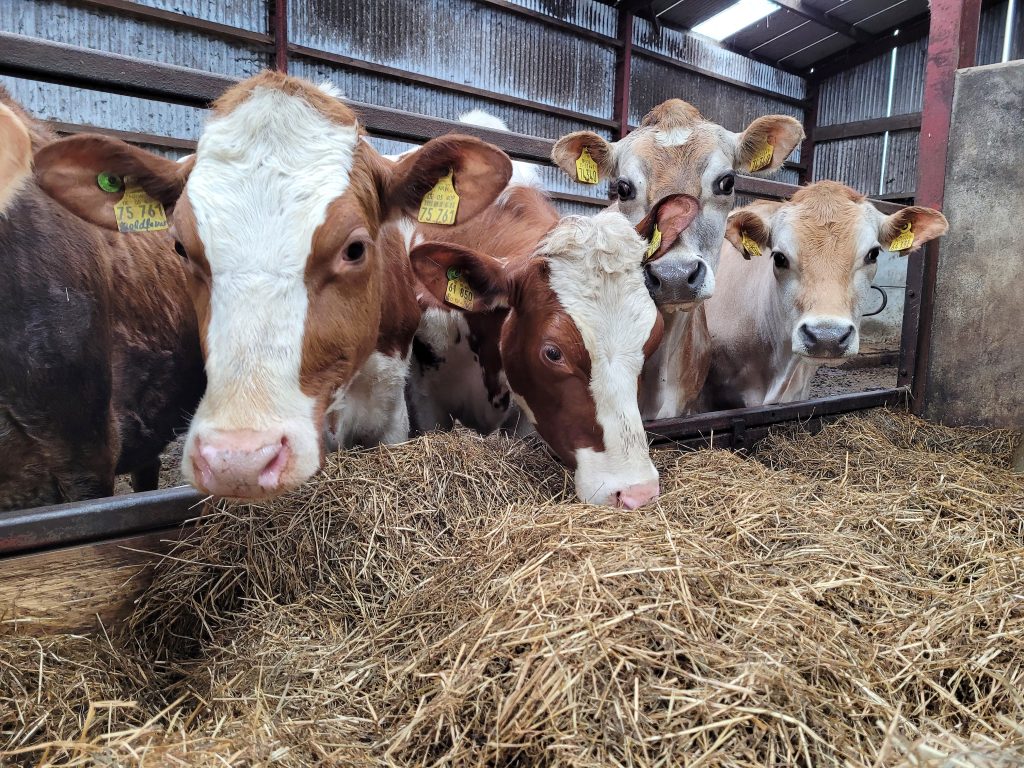
Denmark3-RFP-111025
A huge row has broke out in Denmark after a number of dairy farmers claim their cows have been poisoned by the methane reducing feed additive Bovaer.
Several farmers have reported major health issues in their cows, including fevers, diarrhea, fertility and condition problems, cows collapsing and even some that have died.
Bovaer is a feed additive containing the active ingredient 3-nitrooxypropanol (3-NOP), that reduces methane emissions produced by cattle.
Manufactured by Swiss company dsm-firmenich, it is designed to be added to cow feed in small quantities to inhibit a specific enzyme in the animal’s digestive system, which can cut methane production by up to 30% in dairy cows.
Regulatory bodies like the FSA in the UK and the EFSA in the EU have approved it for use in many countries, stating it is safe for consumers, animals and the environment.
Since Oct. 1, 2025, the Danish government made it compulsory for farms with over 50 cows to add Bovaer to their dairy rations for at least 80 days per year, and if the farmers didn’t comply they faced heavy fines.

HUNDREDS OF COMPLAINTS
However, with more cows becoming unwell, farmers have stopped using Bovaer to prevent further poisoning. The Danish Dairy Board said it has over 200 complaints regarding Bovaer.
Anders Ring is 39 years old and milks 600 cows near the small town of Gredstedbro, just 3 kilometers from the North Sea on the southern Denmark coast.
He is married to Mette and together have four young children under 10 years old. He bought his farm just six years ago from a bank.
Anders said, “I own 123 hectares on this farm but also rent other land to give me a total of 280 hectares.
“We milk 600 cows in a 40-stall outside Boumatic rotary parlor that was installed in 2006. Our cows are housed in three barns built in 2006, 2015 and 2020.
“The cows are milked twice per day at 7.30 a.m. and again at 7.30 p.m. Each milking takes around four hours including startup and cleaning afterwards.”
The herd is yielding around 11,500 kilograms of ECM per cow per year with averages of 4.32% butterfat, 3.69% protein and a somatic cell count of 255.
The milk is sold to Arla, the processor who back in November 2024 said it was setting up a trial on some farms to feed Bovaer.
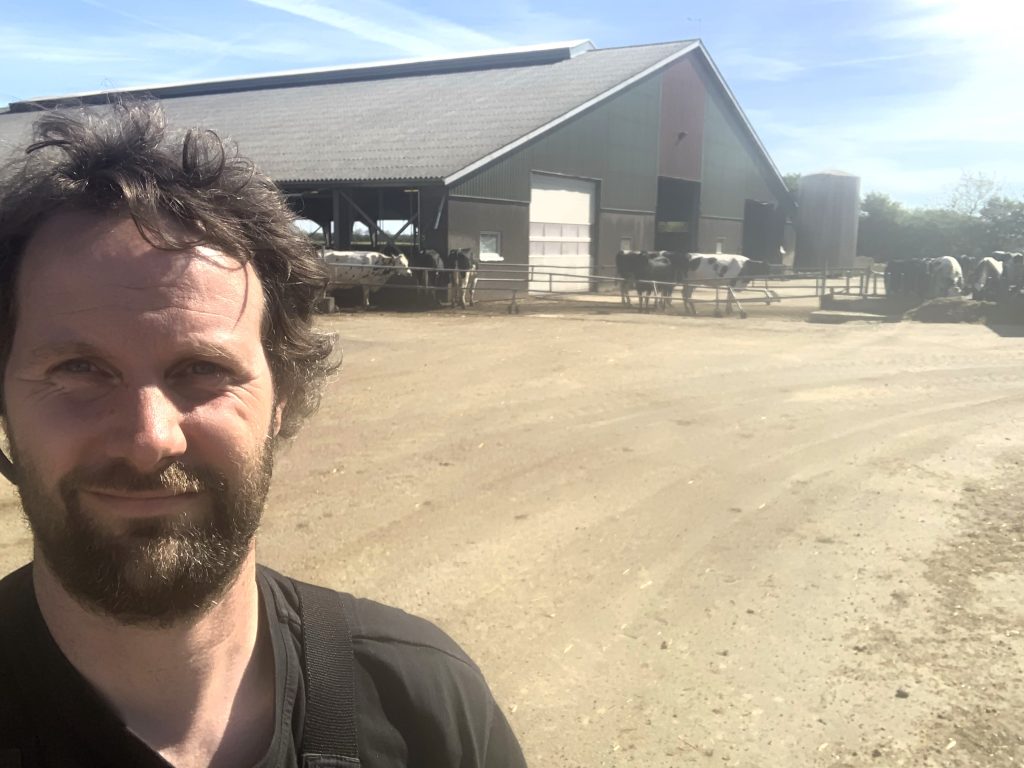
COW HEALTH
Anders has endured several problems in his own herd while feeding Bovaer, and has since stopped, noting an overall improvement in cow health after he did.
Anders said, “In my opinion, Bovaer is a poison. I’ve heard that on some farms, they have cows that collapsed, some have bacteria count problems in the milk, and others are experiencing a loss in milk production, up to 5 kilograms of milk per cow per day.
“On my own farm, since we started feeding Bovaer, we have had an explosion in digital dermatitis, and many cows with bad reproduction.
“I’ve also noticed a lot more cows are now on health checks via my computer system, and the cows have also had higher somatic cell counts,” he said.
After feeding Bovaer to his cows for a month, and witnessing a fall in the herd’s overall health, Anders decided to stop feeding the additive.
Anders said, “We had to stop feeding Bovaer as the cows and our milk production was suffering. Since we stopped feeding it, cow health showed huge signs of improvement. Incidentally, two days later after we stopped feeding Bovaer, our somatic cell count fell by more than 20%.”
Anders hopes the government sees sense and listens to the farmers’ concerns over feeding Bovaer.
He added, “By law, the government said farmers need to feed Bovaer for at least 80 days per year in a bid to lower overall methane production.
“Next year they said their aim was for 40% of the cows, not herds but cows, to be fed it 365 days. Right now, most of our farmers, and some political parties, are calling for a break in the usage.
“I hope the government will see sense come back to sanity within a week,” Anders said.
Meanwhile, Jacob Jensen, the Danish Minister of Food, Agriculture and Fisheries, said: “Some farmers are currently reporting challenges in connection with the use of Bovaer.
“I of course take this very seriously, and the Danish Veterinary and Food Administration is following the matter closely.”
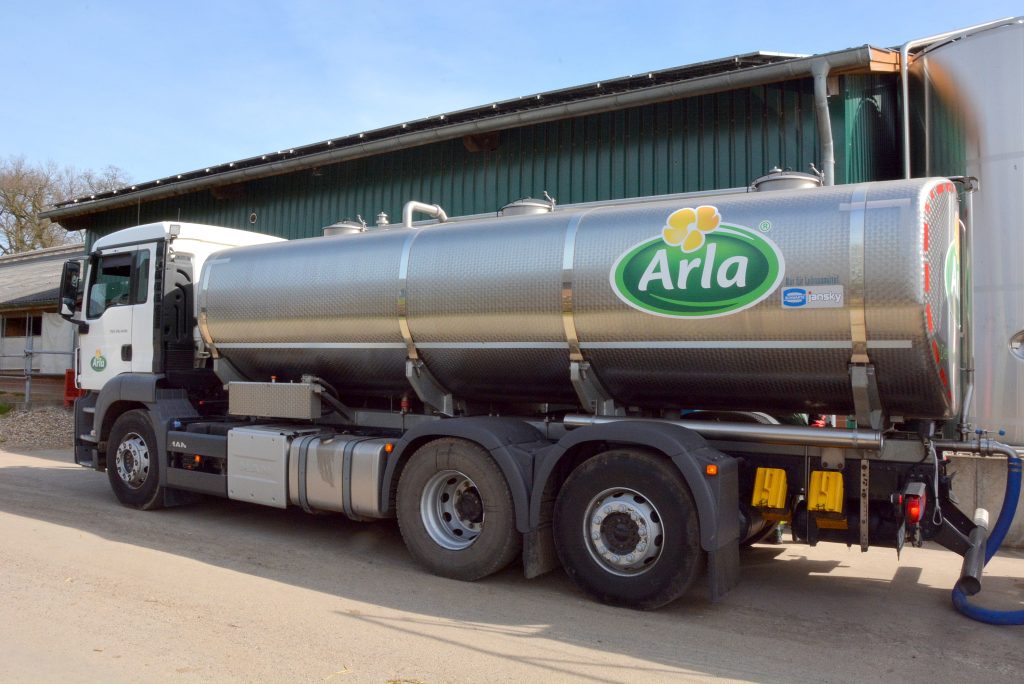
RATIONS
The minister also highlighted that clarifications of mix rates to include Bovaer into rations have been issued and urged farmers not to use too much.
And the company that produces Bovaer, dsm-firmenich, also commented on the current situation.
A company spokesperson said, “We are deeply committed to safeguarding the health and well-being of livestock, supporting farm performance, and securing the future of dairy farming, as we have consistently done for decades.
“Currently, around 1,400 Danish farmers are using the Bovaer feed supplement, and we are aware that in recent days, some farmers have raised concerns about cow health.
“We are actively engaging with the relevant organizations to ensure that all these concerns are fully investigated and properly addressed.
“In previously reported cases, Bovaer was not identified as a contributing factor to the health concerns raised.”
Ida Storm, director, Danish Agriculture & Food Council for Cattle, added, “We are familiar with some cases where dairy farmers report problems after starting using Bovaer. This is obviously of great concern to us.
“Animal welfare must not be compromised. At the same time we are surprised, since no research or large scale trials have indicated problems.
“To gather more knowledge DAFC Cattle has launched an online survey. The dairy farmers can report problems, and we hope to quickly learn more and hopefully find solutions. We strongly urge farmers who experience problems to participate,” she said.

